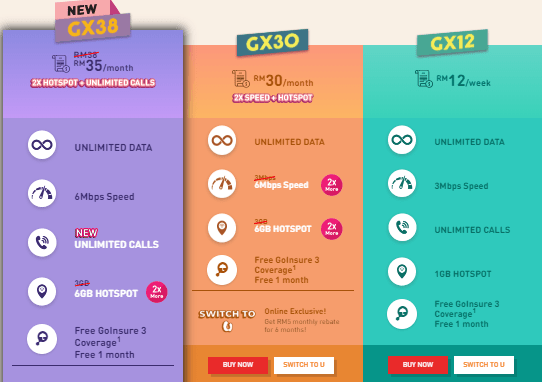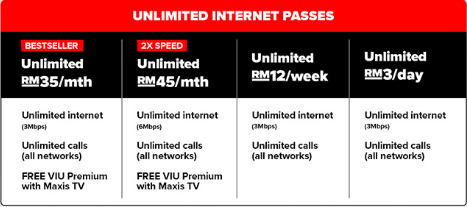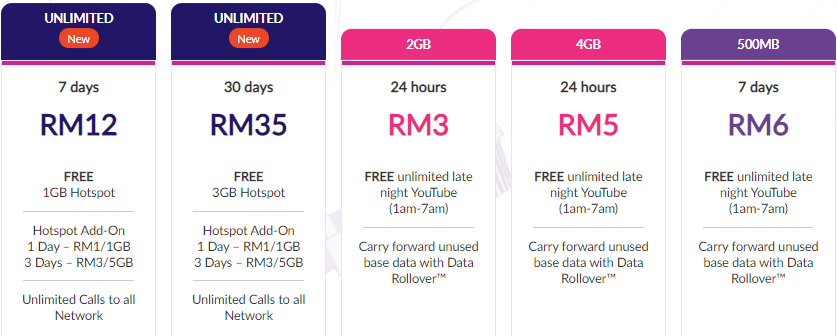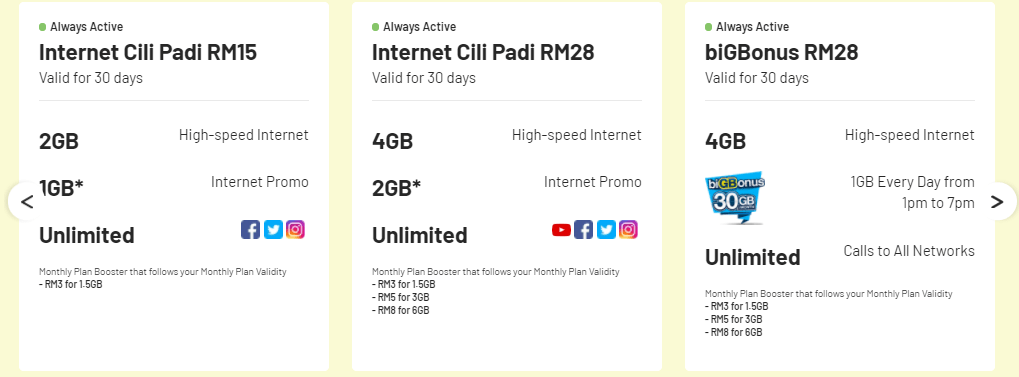When you’re in a foreign land, you will need at least a Malaysia mobile SIM Card to contact home. Especially if you’re an international student embarking on a new education journey here in Malaysia.
Although Wifi is easily accessible in Kuala Lumpur, you may not have internet access enroute to your accommodation or university. You might need to reach your contact here in Malaysia, or book a transport, or perhaps just surf the net. Hence, it might be wise to prepare some connectivity when you touch down in Malaysia.
Types of SIM Card You Can Purchase
There are basically two types of phone plans, aka mobile SIM cards, that you can purchase. Which are prepaid or postpaid mobile plans.
A prepaid plan allows you to pay as you use your mobile connectivity. However, this means you would need to reload/top-up a certain amount of credit beforehand. After which, the balance credit will be deducted based on your usage.
On the other hand, postpaid is a mobile plan that requires you to commit to paying a monthly subscription fee. If you are an international student, a prepaid plan is the way to go. It retains your flexibility to switch your mobile plans depending on your usage.
Regardless of mobile plans types, it usually comes with an internet package to get unlimited data on your internet. Postpaid generally has terrific deals on mobile devices. However, not all offers are available to international students though. So it might be a good idea to just stick to a prepaid plan since they are very competitive nowadays.
Here is a list of Telco companies you can engage in getting your prepaid mobile plans:
UMobile


UMobile is at the top of the list because of its data and phone calls affordability. Because of its high-quality prepaid plans, UMobile is popular among international students. Their most recent campaign, ‘Giler Unlimited’ (‘Crazy Unlimited’ in English), provides three solid options based on your budget.
UMobile’s mid-range GX30 plan may be a good choice if you frequently use the internet but rarely call anyone. For just RM30 a month, you’ll be able to surf the web, play mobile games, and stream YouTube videos all day long. GX38, on the other hand, is ideal for those who constantly use their phones or make phone calls, as it offers unlimited data, WiFi, and blazing-fast speeds.
Hotlink (Maxis)


Maxis Communications, a Malaysian telecommunications company, owns Hotlink. It is one of Malaysia’s most popular phone companies and competes with Celcom as one of the country’s most commonly available 4G service providers. Maxis was named the best telco provider by topping four other telecoms in five out of eight categories by Opensignal’s latest assessment. Like UMobile, Hotlink provides prepaid plans with unlimited data.
The Unlimited RM 35/month package is a popular option that includes unlimited internet, unlimited calls, and freebies like Maxis TV. Hotlink’s RM45/month plan offers the same unlimited internet and calls, but at twice the speed, at 6mpbs. That package’s speed is 3Mbps. In general, Maxis is an excellent option for college students looking for extensive coverage, quick speeds, and additional benefits for streaming online material.
Celcom


Founded in 1988, Celcom is Malaysia’s first mobile telecommunications business. Having been first to market in Malaysia’s early cellular days, the company benefited from constructing many of the country’s networks. Today, Celcom is Malaysia’s leading telecommunications business, with more than 13 million customers across its own brand and that of mobile virtual network operators (MVNOs).
Celcom is a little different because they have a network all over Malaysia. Every 30 days, they charge RM35 for their Unlimited plan. It gives you unlimited internet and calls. According to their press release, Celcom now has 4G coverage in 93% of the country. That means that even if you’re in the middle of Kuala Lumpur or in a village in rural Kedah, you’ll be able to make necessary calls or keep yourself entertained.
Digi


The Digi International Direct Dialing (IDD) service, which made international calls significantly less expensive, became one of the most popular telcos. Especially among international students when it was launched over a decade ago. Obviously, keeping in touch with loved ones back home was a top priority during your four or more years of education abroad. But the widespread use of messaging and video networks like Whatsapp, Facebook, and Skype, that distinguishing advantage is irrelevant.
However, Digi is still one of Malaysia’s leading telecommunications providers. According to Digi’s website, they provide good phone coverage, covering roughly 73% of the population. Digi’s LTE-A network has speeds of up to 20Mbps, which sets it apart from the competition. In addition, a variety of pre-paid plans are available easily. Each with a different name (Internet Cili Padi or Spicy Internet), based on how much data and phone time you use. There are also plenty of options for additional top-ups and add-ons.
What Should I do?
There are many more Malaysia Mobile SIM Card companies than the ones in this article, and each one has different perks and benefits for different types of customers. There’s also a good chance that Malaysia will start building 5G infrastructure, which will undoubtedly speed up WiFi and make it easier to get new prepaid and postpaid plans with a lot of speed. Nonetheless, you should still get one Malaysia Mobile SIM card just in case of emergency!
Read more Student Survival Guide HERE for more tips to make the best of your time here in Malaysia!





















Discussion about this post